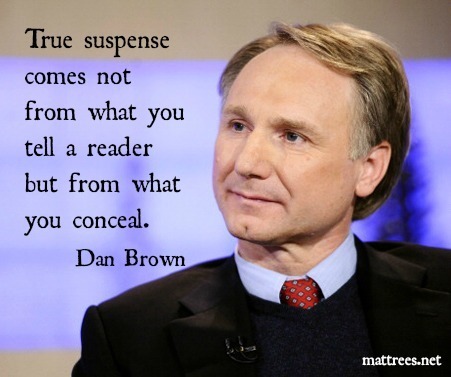Matt Rees's Blog - Posts Tagged "dan-brown"
The elusive, graceful future of journalism: Nina Burleigh's Writing Life
 An NPR foreign correspondent friend used to like to run down a list of seven ways for journalists to grow old gracefully. His premise, which is self-evident to anyone who’s been a reporter, was that daily news was an undignified thing to be doing in your 40s. I can’t remember the whole of the list. It included writing op-eds for your newspaper (which seemed more or less like retirement), teaching journalism at a university (also retirement, but somewhat scorned by other hacks), and maybe the seventh was dieing. Undoubtedly the most prestigious way to proceed, according to that list, was to write nonfiction books. Nina Burleigh has a most graceful career, indeed. A former correspondent for Time and People, she’s written a number of historical nonfiction books, the most recent of which is “Unholy Business: A True Tale of Faith, Greed and Forgery in the Holy Land.” That book focused on a series of biblical archeological finds which the Israeli Antiquities Authority says are fakes and the dealers and archeologists currently on trial for allegedly faking such objects as the burial ossuary of Jesus’s brother James. Sort of “The Da Vinci Code” with subordinate clauses. Since completing “Unholy Business,” Nina’s been working on a book to be published next year about the controversial trial of American Amanda Knox for the ritual murder of a British student with her Italian boyfriend. Pretty gruesome and, when Nina and I chatted about it on my recent New York trip, it also turns out to involve some sinister figures tracking the author. But it also necessitated her taking her family to live in Perugia, Umbria, for most of last year. As I said, it’s the graceful way for a journalist to go. Here’s how she does it:
An NPR foreign correspondent friend used to like to run down a list of seven ways for journalists to grow old gracefully. His premise, which is self-evident to anyone who’s been a reporter, was that daily news was an undignified thing to be doing in your 40s. I can’t remember the whole of the list. It included writing op-eds for your newspaper (which seemed more or less like retirement), teaching journalism at a university (also retirement, but somewhat scorned by other hacks), and maybe the seventh was dieing. Undoubtedly the most prestigious way to proceed, according to that list, was to write nonfiction books. Nina Burleigh has a most graceful career, indeed. A former correspondent for Time and People, she’s written a number of historical nonfiction books, the most recent of which is “Unholy Business: A True Tale of Faith, Greed and Forgery in the Holy Land.” That book focused on a series of biblical archeological finds which the Israeli Antiquities Authority says are fakes and the dealers and archeologists currently on trial for allegedly faking such objects as the burial ossuary of Jesus’s brother James. Sort of “The Da Vinci Code” with subordinate clauses. Since completing “Unholy Business,” Nina’s been working on a book to be published next year about the controversial trial of American Amanda Knox for the ritual murder of a British student with her Italian boyfriend. Pretty gruesome and, when Nina and I chatted about it on my recent New York trip, it also turns out to involve some sinister figures tracking the author. But it also necessitated her taking her family to live in Perugia, Umbria, for most of last year. As I said, it’s the graceful way for a journalist to go. Here’s how she does it:How long did it take you to get published?
First published in sixth grade, I think. A local library in Elgin, Illinois. First paid publishing in journalism, at the AP in Springfield, Illinois. First book published, 1997. I don’t want to say how old I was then, but it happened because my agent was trawling the DC press corps for clients and found me. I had written a novel or two and never got anywhere with them (still haven’t sold any fiction).
Would you recommend any books on writing?
I like Strunk and White “Elements of Style.” And a Roget’s Thesaurus. I prefer my old paperback one, although the one on the web works okay.
What’s a typical writing day?
If I’m in the groove, I get up in the morning, fiddle around on the internet until I feel totally guilty, then quit it and don’t go back on for at least 3 or 4 hours, during which time I am supposedly writing, but may in fact be re-reading, in which case it’s not such a great day. After that, I usually have lunch or kids or other distractions.

Plug your latest book. What’s it about? Why’s it so great?
“Unholy Business.” Thrilling, hilarious and fun. Best book I ever put together. I am so depressed that it didn’t sell and that Collins never made a paperback of it. It’s fast and entertaining. But, the next book about Amanda Knox will be even better and maybe people care more about youth, sex drugs and Italy than fake archaeological objects and the Bible they purport to prove.
How much of what you do is:
a) formula dictated by the genre within which you write?
b) formula you developed yourself and stuck with?
c) as close to complete originality as it’s possible to get each time?
Pretty much, c, if you are talking about structure. In terms of method … probably b.
What’s your favorite sentence in all literature, and why?
Ridiculous question, Matt. I can’t remember the name of the author or book, though.
What’s the best descriptive image in all literature?
Hmm. In ALL of literature? I can’t remember. I do like a lot of the description in “The Leopard”, which I read in preparation for working in Italy. The author brilliantly, deliciously evokes 19th century Sicily, a place and time I had never given much thought to.
Who’s the greatest stylist currently writing?
I don’t know. There are a lot of smart writers out there. I kind of admire Chris Buckley’s novels about American politics.
Who’s the greatest plotter currently writing?
I wish I knew. I would copy it.
How much research is involved in each of your books?
Too much. I really don’t want to work this hard.
Do you have a pain from childhood that compels you to write? If not, what does?
Yes, and it exists today. Nobody pays attention to me when I speak.
What’s the best idea for marketing a book you can do yourself?
I’ve heard that John Berendt claims you must do 4 things for your book every day for a year in order to get a best-seller. It worked for him, obviously. But I ran out of “things” after a few weeks the last time I tried.
What’s your experience with being translated?
I love looking at my book in Japanese. I have no idea where my name is on it, it could say anything.
Do you live entirely off your writing? How many books did you write before could make a living at it?
I do live off my writing, but not off my books alone.
How many books did you write before you were published?
I think there was one novel in a drawer. It remains there.
What’s the strangest thing that happened to you on a book tour?
An autistic-seeming guy at the Jewish book festival in San Francisco followed me all around for an hour and none of the organizers stepped in, I had to hide. And then, I am among the chosen who have had the humiliating experience of speaking at bookstores where only the employees are present.
What’s your weirdest idea for a book you’ll never get to publish?
I really want to write the amazing life story of my dog, picked up in a gutter in Mexico, now splitting his time between an apartment in Manhattan and house in upstate New York, after a half year frolicking in the olive groves of Umbria. I want to go into his brain and write about the world from his point of view. I think he must have a rather happy outlook. I don’t think this is any less likely to get published than my other ideas, though.
Published on March 06, 2010 04:35
•
Tags:
amanda-knox, archeology, biblical-archeology, christopher-buckley, da-vinci-code, dan-brown, elements-of-style, elgin, faith, forgery, giuseppe-di-lampedusa, history, holy-land, illinois, interviews, israel, italy, john-berendt, journalism, manhattan, mexico, nina-burleigh, nonfiction, people, perugia, ritual-murder, sicily, springfield, strunk-and-white, the-leopard, the-writing-life, time, unholy-business, writers
MOZART'S LAST ARIA out now in the US
 My new novel MOZART'S LAST ARIA is out Nov. 1 in the US, published by HarperCollins. The book has earned terrific reviews from top writers like Tess Gerritsen, who says it's a "fascinating historical mystery. A perfect read." NPR compares it to The Da Vinci Code, and Kirkus Reviews says it "will delight fans of classical music." You can browse inside the book here and buy it here. Watch videos about the book and hear me read from it here.
My new novel MOZART'S LAST ARIA is out Nov. 1 in the US, published by HarperCollins. The book has earned terrific reviews from top writers like Tess Gerritsen, who says it's a "fascinating historical mystery. A perfect read." NPR compares it to The Da Vinci Code, and Kirkus Reviews says it "will delight fans of classical music." You can browse inside the book here and buy it here. Watch videos about the book and hear me read from it here.
Published on November 02, 2011 10:35
•
Tags:
crime-fiction, da-vinci-code, dan-brown, historical-fiction, mozart, mozart-s-last-aria, tess-gerritsen, wolfgang-mozart
Write a thriller: Conceal to create suspense in writing
Trick readers, but don't hoodwink them
In his fabulous essay The Simple Art of Murder Raymond Chandler wrote that “The solution must seem inevitable once revealed.” That means the end of a thriller or mystery mustn't turn on tricks or hidden clues. There must be nothing that the reader couldn’t have figured out, if they truly wanted to. Certainly nothing that makes the reader feel cheated.
So how do you create a conclusion to a thriller like that?
 In a BBC interview to promote his book Inferno last week Dan Brown had this to say:
In a BBC interview to promote his book Inferno last week Dan Brown had this to say:
The Hound of the Baskervilles is a famous Sherlock Holmes story. More famous frankly for its spooky atmosphere and its movie depictions than for its employment of plot. It’s the greatest example of a cheating author in crime fiction. Just the kind of plot that leaves a reader perplexed and upset in the manner Dan Brown wants to avoid.
How does Holmes solve the mystery? By referring to a painting on the wall of Baskerville Hall, which makes clear what really happened. No one, including the narrator Dr. Watson, had paid attention to the picture, otherwise they too would’ve solved the mystery. The reader doesn't even know of the picture's existence until Holmes tells Watson to take a look at it, after he has declared who the bad guy was.
That’s cheating.
The Russian playwright Anton Chekhov said that if a gun is brandished in Act I, it must be fired in Act III.
Let’s switch that about and make a rule for thrillers: If a gun is fired in Act III, let the reader see someone brandish it in Act I.
In his fabulous essay The Simple Art of Murder Raymond Chandler wrote that “The solution must seem inevitable once revealed.” That means the end of a thriller or mystery mustn't turn on tricks or hidden clues. There must be nothing that the reader couldn’t have figured out, if they truly wanted to. Certainly nothing that makes the reader feel cheated.
So how do you create a conclusion to a thriller like that?
 In a BBC interview to promote his book Inferno last week Dan Brown had this to say:
In a BBC interview to promote his book Inferno last week Dan Brown had this to say: "I really believe that true suspense comes not from what you tell the reader, but from what you conceal. That is the trick to writing something suspenseful. If you do your job well, most readers will not get it. And then when you tell them, they'll look back and say, 'I can't believe I didn't see it. It was right there in front of me.' You never want a reader to look back and say, 'Well, how was I ever going to guess that.'"
The Hound of the Baskervilles is a famous Sherlock Holmes story. More famous frankly for its spooky atmosphere and its movie depictions than for its employment of plot. It’s the greatest example of a cheating author in crime fiction. Just the kind of plot that leaves a reader perplexed and upset in the manner Dan Brown wants to avoid.
How does Holmes solve the mystery? By referring to a painting on the wall of Baskerville Hall, which makes clear what really happened. No one, including the narrator Dr. Watson, had paid attention to the picture, otherwise they too would’ve solved the mystery. The reader doesn't even know of the picture's existence until Holmes tells Watson to take a look at it, after he has declared who the bad guy was.
That’s cheating.
The Russian playwright Anton Chekhov said that if a gun is brandished in Act I, it must be fired in Act III.
Let’s switch that about and make a rule for thrillers: If a gun is fired in Act III, let the reader see someone brandish it in Act I.
Published on March 28, 2014 01:34
•
Tags:
crime-fiction, dan-brown, how-to-plot, inferno, plot, thrillers, writing, writing-tips



